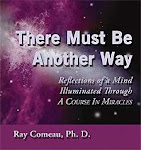To the
Ancient Greeks, theater was a form of entertainment taken very seriously.
People would come from all across the Greek world to attend the popular
theaters held in open air amphitheaters. In their glory days, some
amphitheaters could hold crowds of up to 15,000 people. The theater was a place
where politics, religion, the human condition, popular figures, and legends
were all discussed and performed with great enthusiasm.
The origin of
the dramatic arts in Greece can be found in Athens, where ancient hymns were
sung in honor of their gods. These hymns were later adapted into choral
processions where participants would dress up in costumes and masks.
The starting
point of modern western theater is often credited to the Greeks. Highly
decorated masks. These masks were constructed out of lightweight wood.
There were two holes for the eyes, large enough for the actor to see the
audience but small enough so as not to allow the audience to see him. The
shape of the masks amplified the actor’s voice, making his words easier for the
audience to hear.
The wooden
masks were called personas, from the Latin, per,
meaning “through,” and son, meaning
“sound.”
This is the
origin of our words, person, personality, personification, and persona. Our personality is a mask we wear, a mask
created by our conditioning, well in place by the time we are five years old.
I appreciate
so much Mooji’s use of the words Person and Isness. In our Personhood we are projecting the
egoic-mind, seeing “out there” what is first “in here.” When we experience our Isness, we can see
through the duality and relativity of our Personhood, our mask, our masquerade,
and see a true reflection.
This is so
well expressed in a poem by Juan Ramon Jemenez (1891-1958), I Am Not I.
I (Person) am not I. (Isness)
I (Isness) am this one
walking beside me
whom I (Person) do not
see,
whom at times I (Person)
manage to visit,
and whom at
other times I (Person)
forget;
who remains calm
and silent while I (Person)
talk,
and forgives,
gently, when I (Person)
hate,
who walks where I (Person)
am not,
who will remain
standing when I (Person)
die.
I (Isness) am this one
walking beside me
whom I (Person) do not
see,
whom at times I (Person)
manage to visit,
and whom at
other times I (Person)
forget;
who remains calm
and silent while I (Person)
talk,
and forgives,
gently, when I (Person)
hate,
who walks where I (Person)
am not,
who will remain
standing when I (Person)
die.
Let me give a
PERSONAL example.
Booth my
father and mother had little expression on their faces. My father was usually stoic, and my mother
seemed to have a suffering, but almost expressionless, face.
As a child, I
would search their faces to see what they were thinking of me. To this day, I need to be aware of this
conditioning. When I encounter a PERSON
with an expressionless face, I usually have a negative reaction. I have learned to be aware of this
conditioning and ask for help to see through the mask to his or her Isness.

No comments:
Post a Comment